Related Research Articles
The Seven Sisters are a group of seven highly prestigious private liberal arts colleges in the Northeastern United States that are historically women's colleges. Barnard College, Bryn Mawr College, Mount Holyoke College, Smith College, and Wellesley College are still women's colleges. Vassar College became coeducational in 1969, and Radcliffe College was absorbed in 1999 by Harvard College and now offers programs in advanced study.
Mary Patterson McPherson has served as the president of Bryn Mawr College (1978–1997), the vice president of the Andrew W. Mellon Foundation (1997–2007), and the executive officer of the American Philosophical Society (2007–2012). She is considered to be "a significant figure in American higher education and a leader in the education of women".
Nancy J. Vickers is an American educator and college administrator. She was the seventh president of Bryn Mawr College in Bryn Mawr, Pennsylvania (1997–2008).
Bryn Mawr School, founded in 1885 as the first college-preparatory school for girls in the United States, is an independent, nonsectarian all-girls school for grades PK-12, with a coed preschool. Bryn Mawr School is located in the Roland Park section of Baltimore, Maryland.
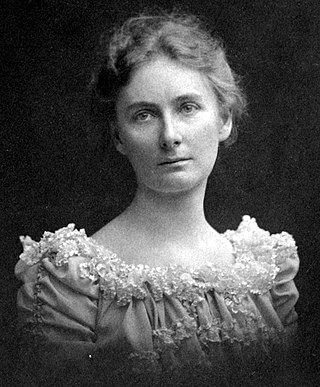
Florence Bascom was a pioneer American woman geologist and educator. Bascom became an anomaly in the 19th century when she earned two bachelor's degrees. Earning a Bachelor of Arts in 1882, and a Bachelor of Science in 1884 both at the University of Wisconsin. Shortly after, in 1887, Bascom earned her master's degree in geology at the University of Wisconsin. Bascom was the second woman to earn her PhD in geology in the United States, in 1893. Receiving her PhD from Johns Hopkins University, this made her the first woman to earn a degree at the institution. After earning her doctorate in geology, in 1896 Bascom became the first woman to work for the United States Geological Survey as well as being one of the first women to earn a master's degree in geology. Bascom was known for her innovative findings in this field, and led the next generation of female geologists. Geologists consider Bascom to be the "first woman geologist in America".
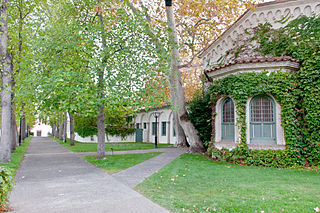
Women's colleges in the United States are private single-sex U.S. institutions of higher education that only admit female students. They are often liberal arts colleges. There are approximately 26 active women's colleges in the United States in 2024, down from a peak of 281 such colleges in the 1960s.

Vincent Ellis McKelvey was an American geologist and earth scientist. Recognized as an international authority on deep-sea mineral deposits, he spent 46 years with the United States Geological Survey. From 1968 to 1982, he served as scientific adviser and senior deputy to the United States delegation to the Law of the Sea Conference of the United Nations, where fellow delegates often depended on his ability to render complex scientific issues into plain English.

The European Association of Geoscientists and Engineers (EAGE) is a professional organization for geoscientists and engineers, established in 1951 with a worldwide membership. The association provides a platform for professionals in geophysics, petroleum exploration, geology, reservoir engineering, mining, civil engineering, digitalization and energy transition to exchange ideas and information. EAGE operates two divisions: the Oil & Gas Geoscience Division and the Near Surface Geoscience Division.
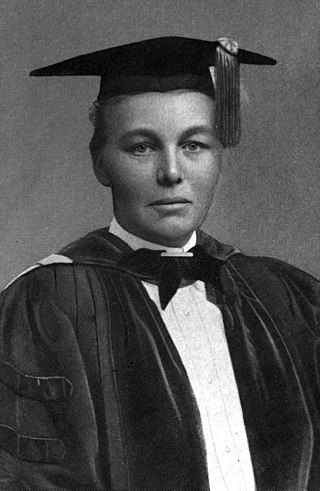
Ida Helen Ogilvie was a United States educator and notable early twentieth century woman geologist.

Emilie Norton Martin was an American mathematician and professor of mathematics at Mount Holyoke College.

Millicent Carey McIntosh was an educational administrator and American feminist who led the Brearley School (1930–1947), and most prominently Barnard College (1947–1962). The first married woman to head one of the Seven Sisters, she was "considered a national role model for generations of young women who wanted to combine career and family," advocating for working mothers and for child care as a dignified profession.
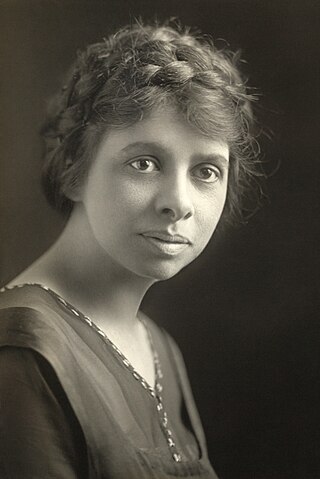
Iris Calderhead was an American suffragist and organizer in the National Woman's Party. She earned an A.B. in English from the University of Kansas in 1910 and completed a graduate degree at Bryn Mawr College in 1913. She was the daughter of William A. Calderhead, the congressional representative for Kansas' 5th District from 1895 to 1911.

Alice Mary Dowse Weeks was an American geologist. Weeksite is named after her. She identified uranophane in 1953 along with Mary E. Thompson. Weeks was the first to propose the concept of oxidation of ore deposits that contain uranium, vanadium, and other accessory metals. She founded the Geology Department at Temple University in Philadelphia, and was a strong proponent of women in geology.
Clara Landsberg was an American educator. She was the leader of the adult education programme at Hull House, and was a close collaborator of Nobel laureate Jane Addams. She later taught at Bryn Mawr School with her lifelong friend Margaret Hamilton.

The Decennial Mineral Exploration Conferences (DMEC) is a Canadian voluntary association dedicated to the advancement of geoscience applied to exploration for mineral resources. The inaugural 1967 conference "Canadian Centennial Conference on Mining and Groundwater Geophysics", held in Ottawa, Canada, was organized by the Geological Survey of Canada as part of the Canadian Centennial. While the original session focussed on mining and groundwater geophysics, the purpose of subsequent conferences expanded to include geochemistry, and other geoscience disciplines as they are applied in mineral exploration.
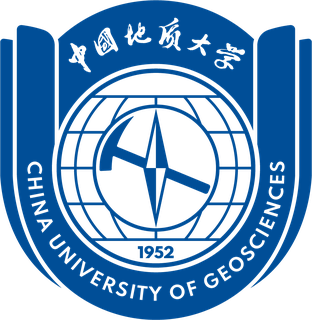
The China University of Geosciences (Beijing) is a public university located in Beijing, China. It is affiliated with the Ministry of Education, and co-funded by the Ministry of Education and the Ministry of Natural Resources. The university is part of the Double First-Class Construction and Project 211.
Ellen Deborah Ellis was an American Professor of history and political science. She founded the political science department at Mount Holyoke College and was named its first chairman.
Isabel Fothergill Smith was a geology professor from Greeley, Colorado. She studied geology at Bryn Mawr College under her mentor Florence Bascom. Smith published various articles as a student and a memoir on Bascom later during her retirement. Beginning her career as an associate professor of geology at Smith College, Isabel later became the first dean of Scripps College, a prestigious women's liberal arts college.
References
- 1 2 3 4 5 6 Cobb, Margaret Cameron (1924). The origin of corundum associated with dunite in western North Carolina. Bryn Mawr, Pa.: s.n.
- ↑ Alumni News/University of North Carolina at Greensboro. University Libraries The University of North Carolina at Greensboro. Greensboro, N.C. : The University of North Carolina at Greensboro. 1974. p. 12.
{{cite book}}: CS1 maint: others (link) - 1 2 Barnard College (1925). The Bulletin of the Associate Alumnae of Barnard College. Barnard College. Barnard College. p. 22.
- ↑ The New York Times 1916-05-13: Vol 65 Iss 21,294. 1916-05-13.
- ↑ Bryn Mawr College (1921). Bryn Mawr College Calendar, 1921. Special Collections Bryn Mawr College Library. Bryn Mawr, PA: Bryn Mawr College.
- 1 2 American Men of Science: A Biographical Directory. Bowker. 1949. p. 458.
- ↑ College, Mount Holyoke (1917). Annual Report of the President ...
- 1 2 "Historic Fellows | American Association for the Advancement of Science". www.aaas.org. Retrieved 2022-04-06.
- ↑ "Women enter geology field". The News. 1938-12-07. p. 17. Retrieved 2022-04-07.
- ↑ Ambronn, Richard (1928). Elements of Geophysics as Applied to Explorations for Minerals, Oil and Gas. Translated by Cobb, Margaret C. McGraw-Hill Book Company, Incorporated.
- ↑ Lambert, Walter D. (1932-07-08). "Elements of Geophysics as Applied to Explorations for Minerals, Oils and Gas By Dr. Richard Ambronn, Göttingen. Translated by Margaret C. Cobb, Ph.D., New York, McGraw-Hill Book Co". Science. 76 (1958): 35–36. doi:10.1126/science.76.1958.35.b. ISSN 0036-8075. S2CID 239866183.
- ↑ Barnard College (1975). Barnard Alumnae. Barnard College. Barnard College. p. 23.